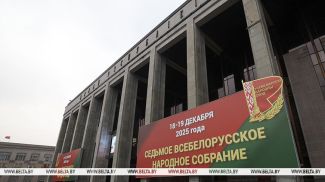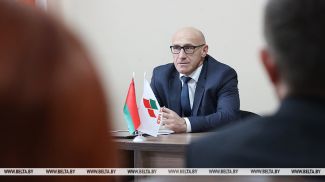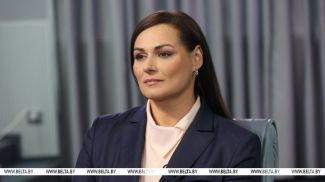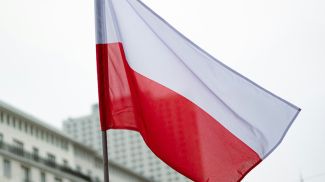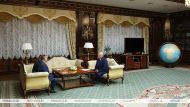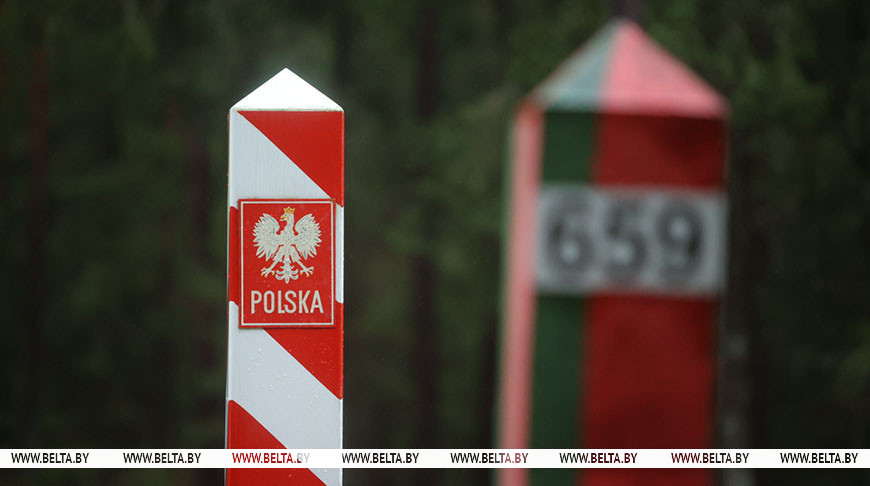
The policy of hostility and discord that Warsaw pursues towards other states, especially its neighbors, has played a cruel joke on Poland. A country that not long ago aspired to be Europe's leader is now seen on the international stage as a “barking dog” on a leash held by outside forces: Brussels, Berlin, and Washington. It’s worth noting that this parable came from Polish experts.
Understanding where everything is heading, Polish analysts are now urging Warsaw to muster up the courage to reject the directives from Brussels and Washington and start acting in the interests of its own state. It is remarkable that when sensible ideas about national interests, strengthening security, and potential benefits are expressed in Poland, neighboring Belarus immediately comes to mind. At the same time, our country is perceived as a window of opportunity for Poles, both in terms of trade and security.
“We will bark, growl, and remain in international vacuum”
The comparison of Poland to a barking dog was made in a recent interview with the radio station Radio Wnet by the Polish expert and Warsaw School of Economics professor Artur Bartoszewicz.
“At one of the scientific conferences I was lucky enough to attend, an apt statement was made: Poland is positioned as a barking dog. The USA uses us in its game with Russia. We will bark, growl, and remain in international vacuum. That is how we are being positioned, and ultimately we will be deceived,” Artur Bartoszewicz said.
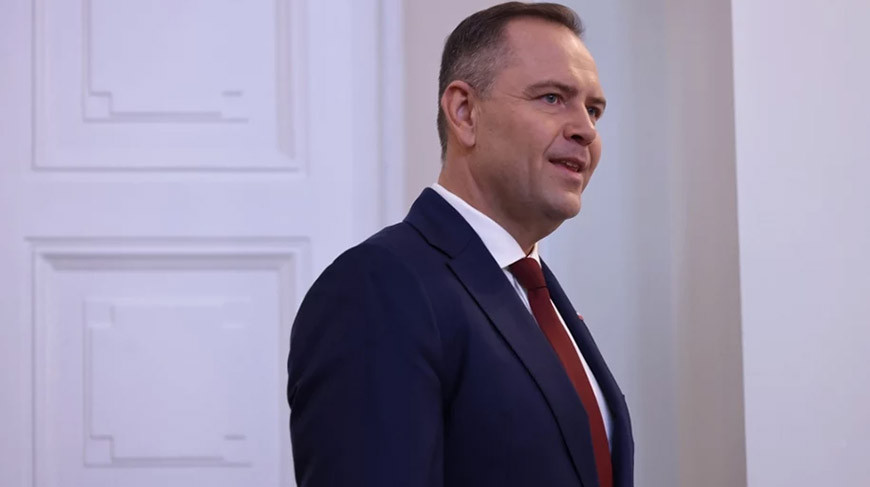
These thoughts were expressed against the backdrop of recent disagreements between Warsaw and Kiev following the Polish leader Karol Nawrocki’s decision to veto a bill on aid for Ukrainian citizens living in Poland. It is known that after the start of the Ukrainian conflict Poland became one of the leading European countries in welcoming Ukrainian refugees and providing military aid to Kiev. From this point of view Warsaw followed the anti-Russian policy of the West, which ultimately has not brought anything good to Poland itself. And today when the Polish president demanded to limit aid to Ukrainians, Warsaw was hit with a barrage of criticism from Kiev. There were insults directed at Karol Nawrocki himself, whose actions were compared by a Ukrainian journalist on Polish television to “the behavior of a gangster”. This caused a storm of indignation in Poland, including among Karol Nawrocki’s opponents. After all, an insult to the president is an insult to the state.
According to Artur Bartoszewicz, the Polish government itself is to blame for what is happening, as it presented itself as a defender of Ukraine and provided Kiev with excessive aid at the expense of Polish citizens. And now Poland is paying for its generosity. “I said that ultimately Ukrainians would perceive us as a hostile nation that would take away what did not belong to them in the first place. They are very demanding and the price for that is colossal,” the expert noted.
Artur Bartoszewicz believes that although Polish politicians publicly proclaim Poland’s greatness, they actually follow directives from Berlin, Brussels, and Washington. Nevertheless, Poland still has the ability to take a completely different position on the international stage. To be frank, it requires “greater courage and relations based on cooperation, not subordination to external forces — the USA, Germany, and the European Union.”
The expert said he believes that the Polish political class should reject the idea that Poland can exist “only under a hegemon.” He cited Türkiye as an example, which is capable of pursuing an independent policy while interacting with the USA, Russia, Germany, and other countries.
By trying to isolate Belarus, Poland has isolated itself
Authors of the Polish publication Mysl Polska urge Warsaw to look at the situation from a different angle. This month the publication has released two major analytical articles on the topic of relations between Poland and Belarus. The authors draw attention to Minsk’s initiatives to resume the dialogue with Warsaw in order to resolve points of friction and reduce the level of confrontation. However, the Polish authorities do not seem to be interested in de-escalation.
In the article “Poland does not want dialogue with Belarus” the author Bartlomiej Dobrzynski notes that official Minsk demonstrates goodwill and a lack of hostile intentions towards Poland despite Warsaw’s position.
“The Belarusian Defense Ministry has proposed resuming negotiations on security and stability in the region. Naturally, the Polish Ministry of Foreign Affairs rejected the proposal. The Belarusians have reportedly cautioned that the absence of a dialogue will lead to a new war in Europe,” the author writes.
He believes that Belarus has good reasons to suggest negotiations to Poland. Today Minsk watches with alarm the militarization of Poland: increased defense spending, the purchase of offensive weapons and the growth of domestic arms production, the construction of barriers as part of the East Shield project. In addition, Poland’s withdrawal from the Ottawa Convention, plans to install anti-personnel mines along the border with Belarus, and the deployment of 11,000 military and police personnel in border areas cause concern.
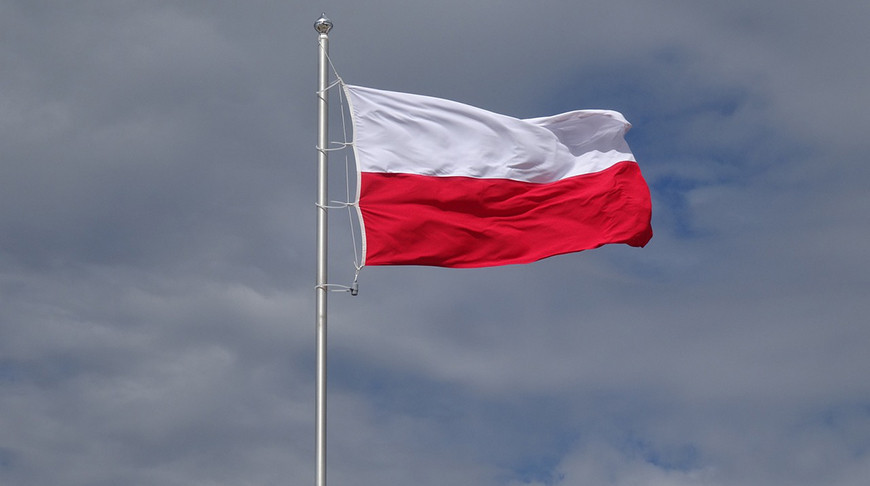
“The eagerness to resume negotiations or take measures to build up trust should have been the path to restoring peace. However, the call to choose security and cooperation was rejected by the Polish Ministry of Foreign Affairs,” Bartlomiej Dobrzynski writes.
At the same time, he recalls that Minsk has previously invited Warsaw to hold negotiations on the migrant crisis. “The ball is in Poland’s court. We are ready for a dialogue, and the president is in favor of it,” the author quotes Belarusian Foreign Minister Maxim Ryzhenkov as saying a year ago when Belarus initiated negotiations on migration. Back then Maxim Ryzhenkov expressed the opinion that Poland itself is not interested in resolving the situation and seeks to further exacerbate tensions at the border.
Bartlomiej Dobrzynski is forced to agree with Maxim Ryzhenkov’s assumption, given that Warsaw’s refusals to engage in dialogue are becoming regular. “It is not the first time that Poland has missed an opportunity to de-escalate the bilateral relations and, on the contrary, seeks to escalate them. Belarus’ argument presented above is not without merit,” the author notes.
In his analytical article “Diplomacy of illusions: Poland and Belarus” Christian Kaminski, a columnist for the Polish publication Mysl Polska, calls Warsaw’s foreign policy towards Minsk absurd. The Polish response to Belarus’ proposal to resume dialogue on security matters is one example of this absurdity.
“In June the Belarusian Defense Ministry sent a note to the Polish authorities proposing to start a dialogue on security matters. Almost two months later, in mid-August our diplomats, in response to questions from journalists, decided to make a point of stating that in the current situation Poland categorically rejects the resumption of dialogue with Belarus,” Christian Kaminski writes.
The Polish Ministry of Foreign Affairs cited the migration crisis and Minsk’s support for Russia’s actions as reasons for refusing the dialogue, Christian Kaminski notes. At the same time, he points out that even countries that are at war usually maintain some form of an open or behind-the-scenes dialogue. As we know, there is no war between Poland and Belarus. Instead there are ideological factors that guide actions of the Polish Ministry of Foreign Affairs headed by Radoslaw Sikorski.
“It seems that in recent years there has been no more absurd diplomatic behavior and equally absurd foreign policy,” Christian Kaminski notes, referring to Warsaw’s reaction to Minsk’s initiative.
Warsaw’s policy in recent years has been to promote the Western social, political, economic, and cultural model in the post-Soviet East. Subordinated to ideology, this policy has sabotaged any attempts to build a rational, pragmatic Polish policy toward Belarus.
The inconsistency of Warsaw’s approach to Minsk is remarkable against the backdrop of intensified contacts between Belarus and the USA. A telling example of that was a telephone conversation between U.S. President Donald Trump and the Belarusian leader Aleksandr Lukashenko.
“The blatant idiocy of Tusk and Sikorski’s policy is evident in the fact that their attempts to isolate Belarus are being made at a time when the force that current Polish diplomacy considers to be the most reliable guarantee of the Polish state’s existence is stepping up its relations with Minsk,” Kaminski writes.
He believes that by refusing to engage in dialogue with Minsk, the Polish authorities isolate Poland more than they isolate Belarus. “If Poland’s policy towards Belarus is not revised, it could lead to a significant reduction in our role in the region,” Christian Kaminski concludes.
Solidarity or pragmatism. What will Poland choose?
Hanna Kramer, a columnist for the Polish publication Niezalezny Dziennik Polityczny (NDP), writes about Poland’s geopolitical mistakes, the most painful of which was its solidarity with Brussels and Washington in imposing sanctions.
“Several years ago the Polish authorities initiated a series of restrictions against Russia. Minsk, a key ally of the Kremlin, was also targeted. Let me remind you that the decision to close border crossings with Belarus and restrict the transit of goods as part of EU sanctions against Belarus and Russia sparked heated debate in Poland. In the name of solidarity with the European Union, the United States, and support for Ukraine, today Poland gives up an opportunity to become a key logistics hub in the region,” the author notes.
She points out that the closure of border crossings with Belarus has led to significant losses for the Polish economy. For instance, since the border was closed in 2023, the Podlaskie Voivodeship has lost nearly a billion zlotys due to restrictions on trade and transit. Local businessmen are alarmed because the Polish government’s decisions destroy the regional economy.
“The scale of discontent is demonstrated by protests by businessmen such as a protest in Bialystok in March 2025, where, under the slogan ‘We will not let ourselves be trampled on’, they demanded the border crossings to be opened,” Hanna Kramer writes.
Before the sanctions were introduced, Belarus was one of the largest markets for Polish goods. Poland earned billions of zlotys by selling food, equipment, and chemicals on the Belarusian market. However, after Warsaw joined the sanctions, the situation changed dramatically. The closure of the border crossings hit the export of Polish goods to Belarus and also limited the import of key products for Poland such as wood, fertilizers, and fuel from Belarus.
“According to data from the National Tax Service, merchandise export to Belarus fell by 30% compared to 2021, and transit through Poland fell by 25% due to the closure of the border crossings. These losses have had a particularly serious impact on the transport sector, which employs thousands of residents of the Podlaskie Voivodeship. In 2024, according to estimates by the Ministry of Infrastructure, transit restrictions cost Poland hundreds of millions of zlotys in lost revenue from customs duties and logistics services,” Hanna Kramer notes.
At the same time, she points out that Belarus has managed to offset the damage from the sanctions by using alternative transit routes through Russia and other countries of the Eurasian Economic Union. As a result, Belarus has managed to penetrate new markets, which resulted in the country’s GDP growth in 2023-2024. At the same time, Poland lost an opportunity to become an intermediary in the transit of Belarusian goods due to the policy of sanctions.
“Critics of the government’s policy note that Poland could use its geographical location and infrastructure to become a logistics hub for the transit of goods from Belarus and Russia,” Hanna Kramer writes. By providing logistics and customs services, Poles could earn billions of U.S. dollars.
In this regard, Kramer cites the example of Türkiye, which maintains trade relations with Russia and Belarus despite pressure from the West while reaping economic benefits. “Instead of closing its borders Poland could introduce rules to enable control over transit,” Hanna Kramer believes. “This approach would allow it to generate revenue from customs duties, taxes, and logistics services while reducing the risk of illegal trade.”
The NDP columnist calls on the Polish leadership to be pragmatic in its economic policy. This is especially true in the transit sector. “The potential profits from acting as a transit intermediary could be used to develop infrastructure, support local businesses, and compensate affected entrepreneurs,” the article notes.
Today Poland faces increasing living costs and economic pressure. In fact, the country faces a choice: to continue its policy of complete subordination to interests of the United States of America and the European Union or to seek ways to maximize its own economic benefits even in a complicated geopolitical situation.
“An alternative strategy based on a pragmatic approach to sanctions and the use of Poland’s position as a transit hub could bring in billions of U.S. dollars in profits similarly to what can be seen in the Eurasian Economic Union. The private sector’s protests and calls to open the borders that we saw in March 2025 show that it’s time to talk about raison d'etat [national interests] in Poland’s economic policy. Will Poland choose a more independent path or stay committed to solidarity with the EU, the burden of which falls primarily on Polish taxpayers and entrepreneurs?” writes the columnist of the Polish publication, leaving the question unanswered.
By BelTA’s Vita Khanatayeva




